Anais Mitchell - Interview
by Benjamin Howarth
published: 19 / 2 / 2009
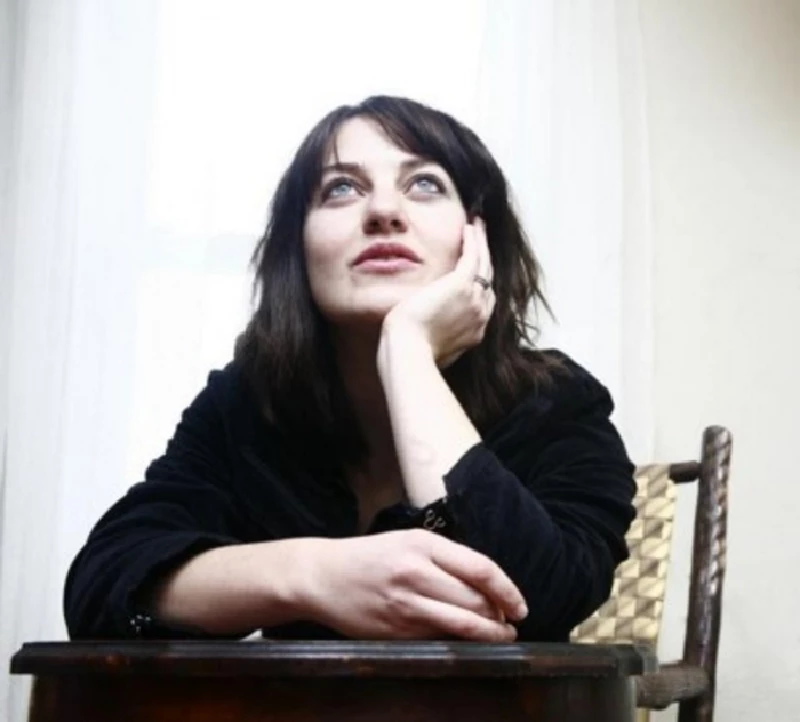
intro
American singer-songwriter Anais Mitchell recently signed to Ani DiFranco's Righteous Babe label. Ben Howarth at a show at the Luminaire in London speaks to her about politics and her exceptional new album, 'The Brightness'
Anais Mitchell grew up, the daughter of a writer and English lecturer, on a sheep farm in Vermont. After studying politics, and travelling on many occasions to the Middle East, she became a folk singer, performing the songs she had begun writing in her teens. Her music fuses traditional timeless melodies with intricate lyrics, which often combine poetical leanings with literary references and journalistic storytelling. After two albums, she was signed to Ani DiFranco’s Righteous Babe label for the release of the quite exceptional ‘The Brightness’. This year, she is set to release the recorded version of a stage show she wrote and produced first in 2006, ‘Hadestown’, collaborating with, amongst others DiFranco and Bon Iver’s Justin Vernon. On the night she performed a sensational solo set at London’s Luminaire venue, where a packed crowd was given a taste of the songs that will make what is surely set to be one of the year’s best albums, Pennyblackmusic met up with Anais and spoke about her song writing and her plans for the future. I began by asking how she was finding this UK tour. AM : When I first came to the UK, I had gotten an email out of the blue from the promoter of a folk music series in Sussex, asking if I wanted a gig. I said yes, and then booked the whole tour myself. I have always found England a great place to play, as people seem to really to listen and understand the heritage of folk music. I often enjoy the British audience more than the American ones. PB : Is there any particular reason for that, do you think ? Do you get a different kind of audience, different ages perhaps? AM : I think it has to do with the appreciation of the lyrics. I have been thinking about this a lot recently, because I am really into these English and Irish ballads from the middle ages. There is something about the language, it is fancy and flowery and poetic in a way that I don’t find in the American ballads. America is great for the below the belt, the rhythmic - what makes you want to dance. That is the American heritage. The British heritage seems to be in the mind and in the heart, the poetic tradition of language. So, yeah, I’m a fan. PB : That style of music is certainly being celebrated at present. Richard Thompson is touring with his tour, ‘1000 years of Popular Music’. AM : I heard about that show. In fact, I covered one of his songs last night. Do you know ‘Beeswing’? Its really beautiful. PB : I do, it’s a fantastic song. I suppose I started listening to Fairport Convention, before moving on to his music. Anyway, I wanted to ask what made you want to be a writer, and what made you start writing songs ? AM : Well, I had always sung, when I was a kid, and I had always enjoyed music. My first instrument was a violin. It was one of those protracted parental guilt things - they wanted me to practice and I never wanted to practice. Then when I picked up the guitar, it finally felt as if I had found my instrument. I started writing songs when I was a teenager. There had been a lot of women in that era that had shot to the forefront - Ani DiFranco and Dar Williams, and then Tori Amos, Sinead O’Connor and Tracy Chapman. It was cool, they were great role models when I started writing songs. I have heard people say that, in this day and age, if you have aspirations as a poet, you’d probably best learn to play guitar. No one goes to to poetry readings anymore, and I was interested in writing songs because I wanted to say something, and here was a way to make people listen. PB : Were those songs based around political issues and statements that you wanted to make, or were they just a way to tell people your thoughts ? AM : Well, my very first songs were terrible! But there was a point when I really got into political song writing. I really loved the early Bob Dylan ballads, especially on the 'Times They Are A’Changin’ album. He would describe an event from a range of angles, strip away the layers and then really expose the complexity of a situation rather than simplifying it. That has always been a role model, a way of talking about things in the real world without using primary colours. Listening to that music made me want to write a political album, and led to the ’Songs for the Exiled’ album that came out a few years back. PB : Even with that album, where there were clear political themes, it never felt as if you were forcing political ideas upon your audience. AM : That’s good to hear. Those songs were written during the first Bush administration, when so much was changing and so fast. Not only was the war starting, but there was corruption at home, the landscape was becoming corporatised. But I was feeling that in a personal way, and I think when I write songs - the goods ones anyway - they come from a place of emotion. Sometimes a song will begin as a love song, and then it become about something else, while keeping those initial instincts. PB : How much goes into each song? Do they require a lot of revision ? AM : It really depends, and it varies. Some songs seem to come from the heavens, and its hard to even take the credit for those. But others change an awful lot, and sometimes require an entirely different set of lyrics for a song that had nearly been finished. But to see a song all the way through to the end, there needed to be an intuitive thing, an abstract and mysterious thing that gives me the heart to take it all the way through. PB: You have released two albums, and a third (’The Song They Sang When Rome Fell’ - 2002) that I can’t actually buy any more, that have both been available for several years. How do you feel about them now ? AM : I’m never fully satisfied. There is always something that could be better. But both of those albums are fairly starkly produced, with just my voice and acoustic guitars, and with some other instruments in isolation. There is a lack of drums on both records. I would say that ‘Hymns For The Exiled’ (2003) is more notably political, while ‘The Brightness’ (2007) were about love and lack thereof. I feel closer to the second because it is more recent, although even since that album I feel that my voice has changed, and now its hard to hear those songs because I sound so young. PB : You have also released, more recently, a country album with Rachel Ries. AM : Well, we had toured together, so we began to work out some harmony parts together. Then we did an EP, two songs of ours each, as well as a cover. We did that, and it was fun. It is what it is, but I’m not sure that we would do another album like that. But the project I am working on now is intensely collaborative, it’s a folk-opera called ‘Hadestown’. Its based on the Orpheus myth, set in a post-apocalyptic American era. Michael Chorney, who produced my previous albums, has written a beautiful score which is performed by a full string section and orchestra, and then there is a director that created the staging and visual elements to the show. We have revised it on several occasions, but I feel that now we have emerged with a version that is the final set of songs. We are recording it now. In fact it is almost done, although it won’t be out until towards the end of this year. There are these amazing guest singers performing these different parts of the show. I can actually tell you who they are now - I had been holding it in - Ani DiFranco, Greg Brown (who is a folk icon in the US) and Justin Vernon, from Bon Iver, is also singing a part. There are a couple of other people on the line, but as I don’t actually have their vocal recordings in my hand, I won’t say who they are. I have been tremendously honoured, and everyone involved in the project has been amazing. It is being produced by Todd Sickafoose, who is Ani DiFranco’s bass player. He’s been great. I’m really excited for this to come out. There are eighteen tracks, but the score with the orchestra was recorded in two days. After that, I was so excited I was almost too scared to put vocals on top. It’s a relief in a way to be making a record that isn’t just about my voice and my guitar. In fact, there was a point when I found out who would be performing on it that I wondered what I was even doing on the record! PB : Well, you did write it! Would you imagine you’ll perform live in that setting, or do you think you will continue to be primarily an acoustic performer? AM : Well, there are kind of two parts to that question - there is the issue of staging the show again. We are keen to do that, but it requires a tremendous amount of money and commitment from a lot of people. But we are hoping to get together a workshop and stage the show again this year in the US. We would love to bring it to London. But we are certainly going to work out a way to bring the music along without the stage show. It may just be my voice, but we will have a band so that you can hear all the string parts. PB : Changing the subject, you signed with Righteous Babe in 2007, the label owned by Ani DiFranco. What do they offer that you didn’t have before ? AM : Mainly the opportunity to tour with Ani DiFranco. Not only is she someone that I have followed since a young age, but she is also remarkable as a businesswoman. Her independence really blazed a trail that a lot of people have been able to fail. And her audience is fantastic. Its huge, young, intelligent - just wonderful people to play for. I think that being able to play a club like this tonight and having people come and fill it up is a result of being able to tour here with her a few months ago. PB : Beyond your new album, what are your plans for the rest of this year ? AM: Well, I have been working on ‘Hadestown’ for almost three years. Its scary putting such a huge project like that to bed. But I’m thinking about the next project, although I have a lot of ideas that I haven’t fully decided upon yet. But as I mentioned at the beginning, I’m really in love with these English ballads, and I could possibly do a traditional record or just write a set of songs in that style. PB: Then, beyond that, are there are really big ambitions that will drive your music in the future ? AM : The ‘Hadestown’ experience has been really eye-opening. The potential of writing music for the theatre had not been something I considered before. But its an interesting thing about music. I could go and see an amazing songwriter, performing beautiful music, and after 40 minutes I’ll be looking at my watch. Then I’ll happily watch a really terrible movie all the way to the end, as I want to know what happens. So there is something powerful about stories - people have belief that they are going to be delivered somewhere by the end. The idea of telling a story through music is definitely something I want to do more, and I think I’ll be able to go about it more efficiently having done it once. But really I just want to keep on making records. There is this great interview with Townes Van Zandt, given just before he died, where a journalist asked what his plan were, and he said that he was "going to write some songs that are so good, nobody knows what they mean, not even me." The craft of song writing is what keeps me coming back. PB : Thank you.
Band Links:-
http://anaismitchell.com/https://www.facebook.com/AnaisMitchellMusic
https://twitter.com/anaismitchell
https://www.youtube.com/user/anaismitchell
Have a Listen:-
Picture Gallery:-
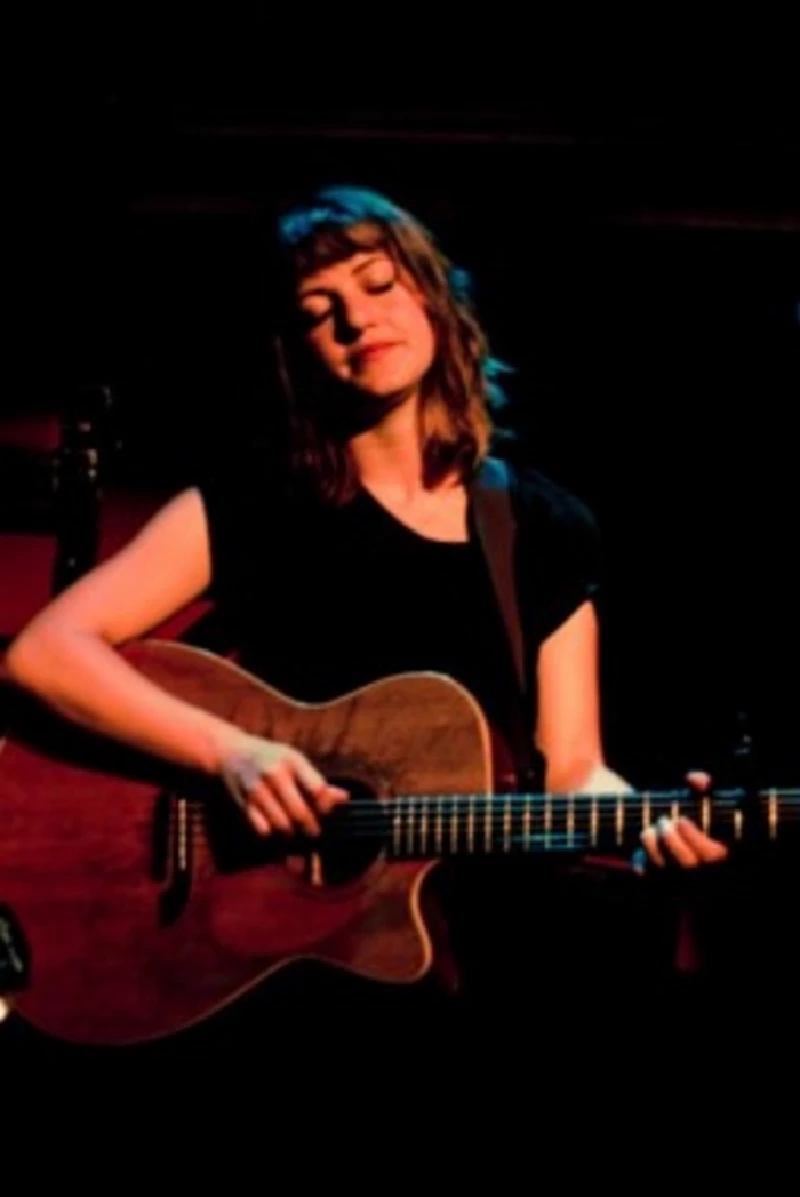
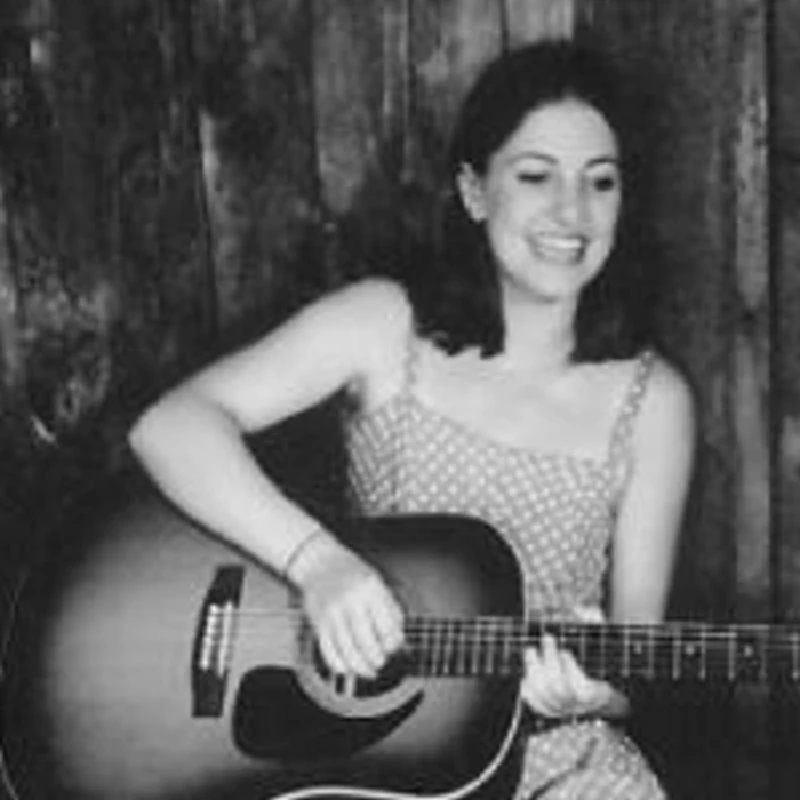
interviews |
|
Interview (2009) |
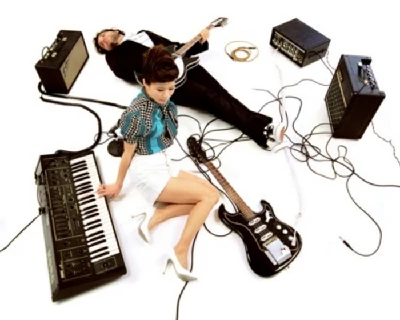
|
| At a gig in Newcastle on their recent European tour, Jonjo McNeill speaks to singer Yuke Chikudate and guitarist James Hanna from New York shoegazers Asobi Seksu about touring, songwriting and their just released third alabum, 'Hush' |
live reviews |
|
Union Chapel, London, 25/1/2011 |
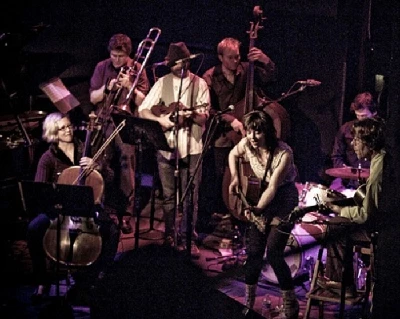
|
| Ben Howarth at the Union Chapel in London watches American singer-songwriter Anais Mitchell, with an extensive set of guest musicians including both Thea Gilmore and Jackie Leven, reenact her concept album, 'Hadestown', to standing ovation and hypnotic effect |
| 12 Bar Club, London, 24/5/2010 |
| Luminaire, London, 25/1/2010 |
| Luminaire, London, 21/1/2009 |
soundcloud
reviews |
|
Anais Mitchell (2022) |
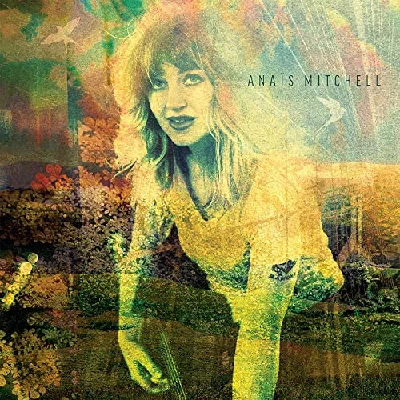
|
| Thoughtful and warm first studio album in ten years for indie folk musician Anais Mitchell who has been focusing on her alternative career writing Broadway musicals. |
| Young Man in America (2012) |
| Hadestown (2010) |
| Hymns for the Exiled (2008) |
most viewed articles
current edition
Carl Ewens - David Bowie 1964 to 1982 On Track: Every Album, Every SongArmory Show - Interview with Richard Jobson
Colin Blunstone - Thalia Hall, Chicago, 16/7/2025
Visor Fest - Valencia, Spain, 26/9/2025...27/9/2025
Bathers - Photoscapes 1
John McKay - Interview
Billie Eilish - O2 Arena, London, 10/7/2025
Loft - Interview
Robert Forster - Interview
Sir Tim Rice - Interview
previous editions
Heavenly - P.U.N.K. Girl EPManic Street Preachers - (Gig of a Lifetime) Millennium Stadium, Cardiff, December 1999
Beautiful South - Ten Songs That Made Me Love...
Oasis - Oasis, Earl's Court, London, 1995
Pixies - Ten Songs That Made Me Love...
Prolapse - Interview
Boomtown Rats - Ten Songs That Made Me Love....
Trudie Myerscough-Harris - Interview
Coldplay - Wembley Arena. London, 16/8/2022
Peter Perrett - In Dreams Begin Responsibilities Interview Part One
most viewed reviews
current edition
Amy Macdonald - Is This What You've Been Waiting For?Sick Man of Europe - The Sick Man of Europe
Phew, Erika Kobayashi,, Dieter Moebius - Radium Girls
Lucy Spraggan - Other Sides of the Moon
Davey Woodward - Mumbo in the Jumbo
Alice Cooper - The Revenge of Alice Cooper
Bush - I Beat Loneliness
Suzanne Vega - Flying With Angels
Blueboy - 2
Cynthia Erivo - I Forgive You
Pennyblackmusic Regular Contributors
Adrian Janes
Amanda J. Window
Andrew Twambley
Anthony Dhanendran
Benjamin Howarth
Cila Warncke
Daniel Cressey
Darren Aston
Dastardly
Dave Goodwin
Denzil Watson
Dominic B. Simpson
Eoghan Lyng
Fiona Hutchings
Harry Sherriff
Helen Tipping
Jamie Rowland
John Clarkson
Julie Cruickshank
Kimberly Bright
Lisa Torem
Maarten Schiethart